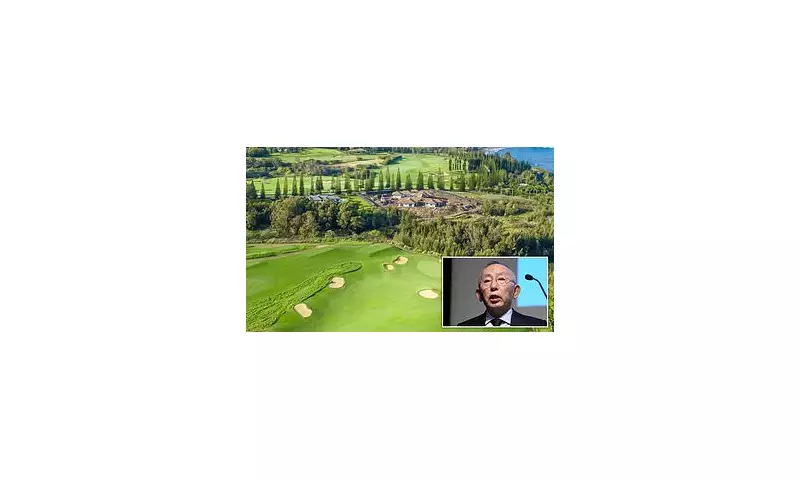
The billionaire founder of global fashion giant Uniqlo is at the centre of an escalating environmental controversy in Hawaii, where his luxury golf courses continue to consume vast quantities of precious water despite the islands suffering their worst drought in decades.
Billionaire's Water-Guzzling Oases
Tadashi Yanai, Japan's wealthiest individual with an estimated fortune of £30 billion, owns four prestigious golf courses on Maui through his company, Pacific Millennium Golf Group. These include the renowned King Kamehameha Golf Club and three courses within the Wailea resort, which locals describe as "green jewels" maintained at the expense of the community's water security.
Paradise Running Dry
While Hawaiian authorities have implemented emergency measures including fines of $500 for residents using water for non-essential purposes like washing cars or watering lawns, Yanai's golf courses continue operating with minimal restrictions. The stark contrast has ignited fury among locals who watch the emerald fairways flourish while their own landscapes turn brown.
"We're being told to let our plants die while these billionaires keep their playgrounds green," one Upcountry Maui resident lamented. "It feels like we're sacrificing for their leisure."
The Numbers Behind the Controversy
Documents reveal the staggering scale of water consumption:
- The four golf courses collectively consume approximately 2.5 million gallons daily
- This equals the water usage of nearly 15,000 local residents
- Some courses use more than 700,000 gallons per day alone
Corporate Responsibility Under Fire
Critics argue that Yanai's operations highlight a broader pattern of wealthy investors prioritising luxury developments over community needs and environmental sustainability. The situation has sparked debates about water allocation policies and whether commercial enterprises should receive preferential treatment during crises.
Local conservation groups have intensified calls for equitable water distribution, urging authorities to reconsider allocation priorities during what scientists describe as a worsening climate crisis affecting the Hawaiian islands.
As the drought persists with no end in sight, the battle over Hawaii's dwindling water resources continues to pit community needs against commercial interests, with Yanai's golf courses becoming the most visible symbol of this growing conflict.





